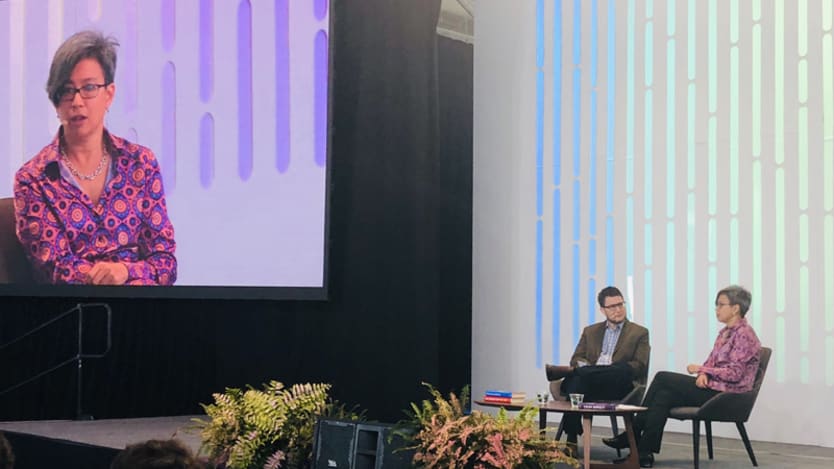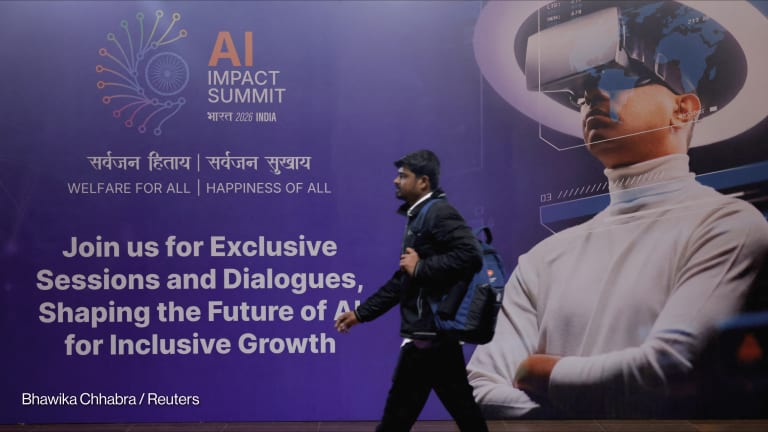
SAN FRANCISCO — The social impact community got a taste of the “lean startup” methodology at the Social Capital Markets conference in San Francisco, California, this week when “Lean Startup” author Eric Ries took the stage with Ann Mei Chang, author of the upcoming book “Lean Impact.”
Widely referenced in Silicon Valley, the lean startup methodology is a scientific approach to creating and managing startups that uses the build-measure-learn feedback loop. Chang, who formerly ran the Global Development Lab at the United States Agency for International Development, is working to package what she describes as “an entrepreneurial version of the scientific method” for the social impact community.
More on innovation:
► Q&A: A criticism of the 'innovation narrative'
► To achieve economic stability, better innovation is needed
Before SOCAP kicked off, Devex spoke with the author about her book and the challenges of optimizing for impact in a sector that is not known for the kinds of experimentation the lean startup methodology calls for.
“Eric [Ries] talks about the lean startup as a methodology to deliver products and services in environments of extreme uncertainty, and that is true of tech companies, but it is equally, if not more true, for global development organizations,” Chang said.
Most innovation in the global development industry generally happen at smaller nonprofits or social enterprises, or at labs within donor agencies and NGOs, Chang said, explaining that the sector as a whole tends to be inflexible and risk-averse.
“At the core of these organizations, it is hard to innovate,” she said.
Global development leaders can adapt the lean startup methodology by developing a hypothesis, then work to build a minimally viable product to test that hypothesis. They then need to gather and act on data, in a cycle of testing and iterating and improving that works better the faster it goes.
“Think of the difference between a utility company and a tech startup,” Chang said. “If you have something you know meets the need, you should be a utility company. But very few things in global development look like that — solutions that are working sufficiently well and getting to sufficient scale. So if something doesn’t work well enough, we need to take risks, recognize there are a lot of unknowns, and experiment and learn, until we have something that works well enough and at large enough scale.”
Chang recommends that when nonprofits apply for a grant, they set money aside for innovation, just as they would set aside money for monitoring and evaluation. She acknowledged that funders have more leverage than implementers in bringing the lean startup methodology to the sector because they control the purse strings. While there is a legitimate need for donors to manage risks and ensure they deliver results, Chang said, they can do more to bet on winners, and build in incentives that encourage outcomes, for example by paying for those outcomes.
“The world is not on track to reach the Sustainable Development Goals,” she warned.
The problem is not just a financing gap, but also a need for solutions that are more effective and scalable, she said. In order to achieve the SDGs, the global development community needs to change its thinking on the definition of success as well as how to get there, Chang added.
That requires a shift from focusing on the constraints to focusing on the needs — as well as move from thinking small and starting big to thinking big and starting small.
“People always gravitate toward the sexy side of innovation,” she said. “What I would do if I were back in a donor agency is spend more time with procurement.”
Chang advised that organizations run small experiments as cheaply as they can so they can learn and adapt.
“Our responsibility should be to lower those risks as quickly as possible, learn as quickly as possible, rather than just blindly plow forward,” she said.
Just like private sector companies are expected to maximize their shareholder value, donors and NGOs should be expected to maximize impact, Chang said, and “Lean Impact” outlines how they can use the lean startup methodology to do that.
Search for articles
Most Read
- 1
- 2
- 3
- 4
- 5








